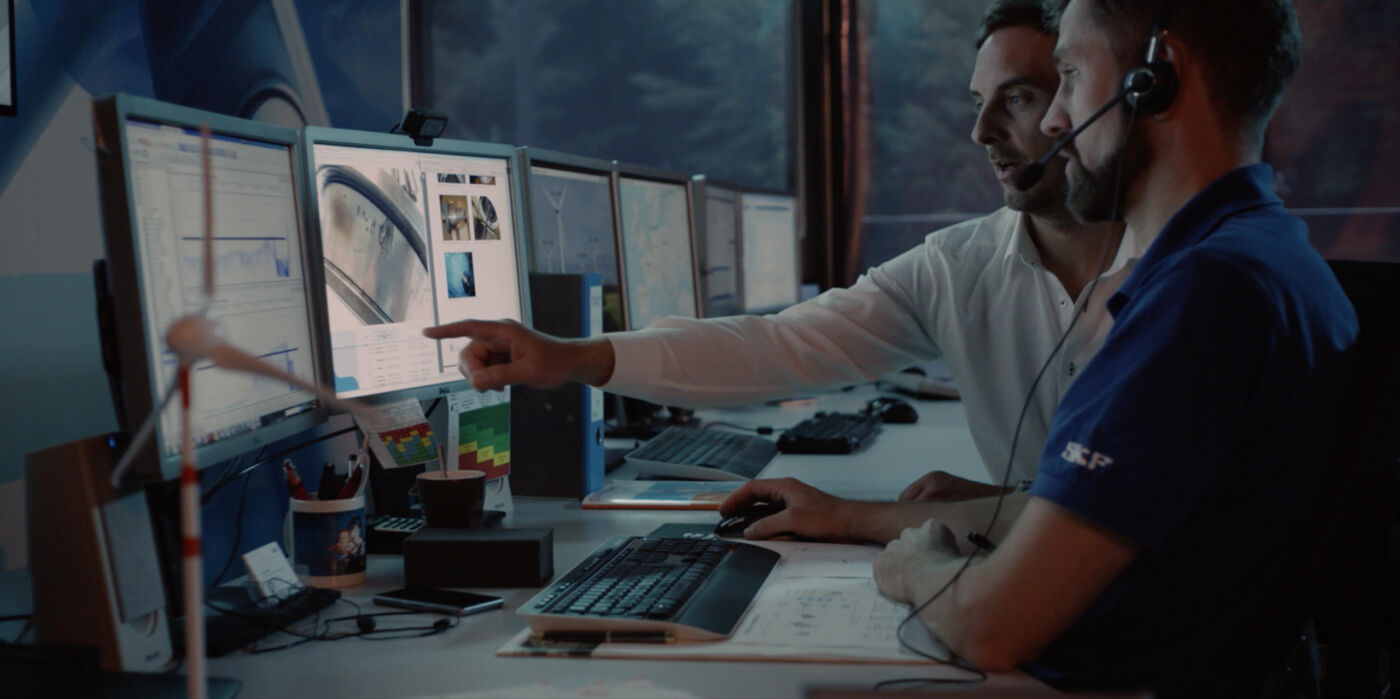A condition monitoring system (CMS) is used to help ensure safe operation and optimal maintenance of wind turbines. However, weather-related false alarms remain a problem. A wind shear or gust can cause the rotor blade angle of attack to shift constantly, triggering vibration alarms and attracting the attention of monitoring technicians. Protean is designed to reduce the number of such false alarms by distinguishing temporary loads from defect conditions. But how exactly does the system work?
Learning how the turbine’s turning
The artificial intelligence (AI) built into Protean records the operating conditions of the wind turbine and “learns” its normal behavior. When configuring the system, the operator defines a value (condition indicator) for each individual machine component. The software is then able to indicate when there is a defect or when parts aren’t performing as they should. After a learning phase of about a week, Protean automatically defines threshold values for various condition indicators. In the event of an alarm or after a planned maintenance run, Protean recalculates the threshold value based on the situation that led to the alarm. Thus, new alarms only sound when the condition deteriorates. Moreover, a single anomaly is not enough to cause alarm, there must always be several. The number can be defined by the operator.
The benefits of such intelligence monitoring are obvious. But it would take far too long to set up a separate indicator for each component individually – for example, to set up the CMS for a 20-turbine wind farm, around 1,000 indicators would have to be set. Protean can alleviate this time-consuming process by applying diagnostic rules from the SKF @ptitude software and linking them to the AI. The result is that the CMS can be set up quickly and easily.
Simple, effective, and reliable
In test operations, Protean reduced the number of false alarms by more than 90 percent. This allows operations and maintenance technicians (including those operating the system) to focus again on genuine issues, as well as saving precious time and money – especially for large wind turbine fleets. What’s more, the easy-to-deploy CMS system becomes more efficient and effective the longer it is in use and learns to define typical and atypical turbine behavior. In addition, the self-diagnostic solution is easy to deploy.
With these features, Protean is a revelation in the field of condition monitoring. This means great progress not only for wind turbines, but for all types of rotating machinery!
More information about Protean can be found on SKF Evolution.



